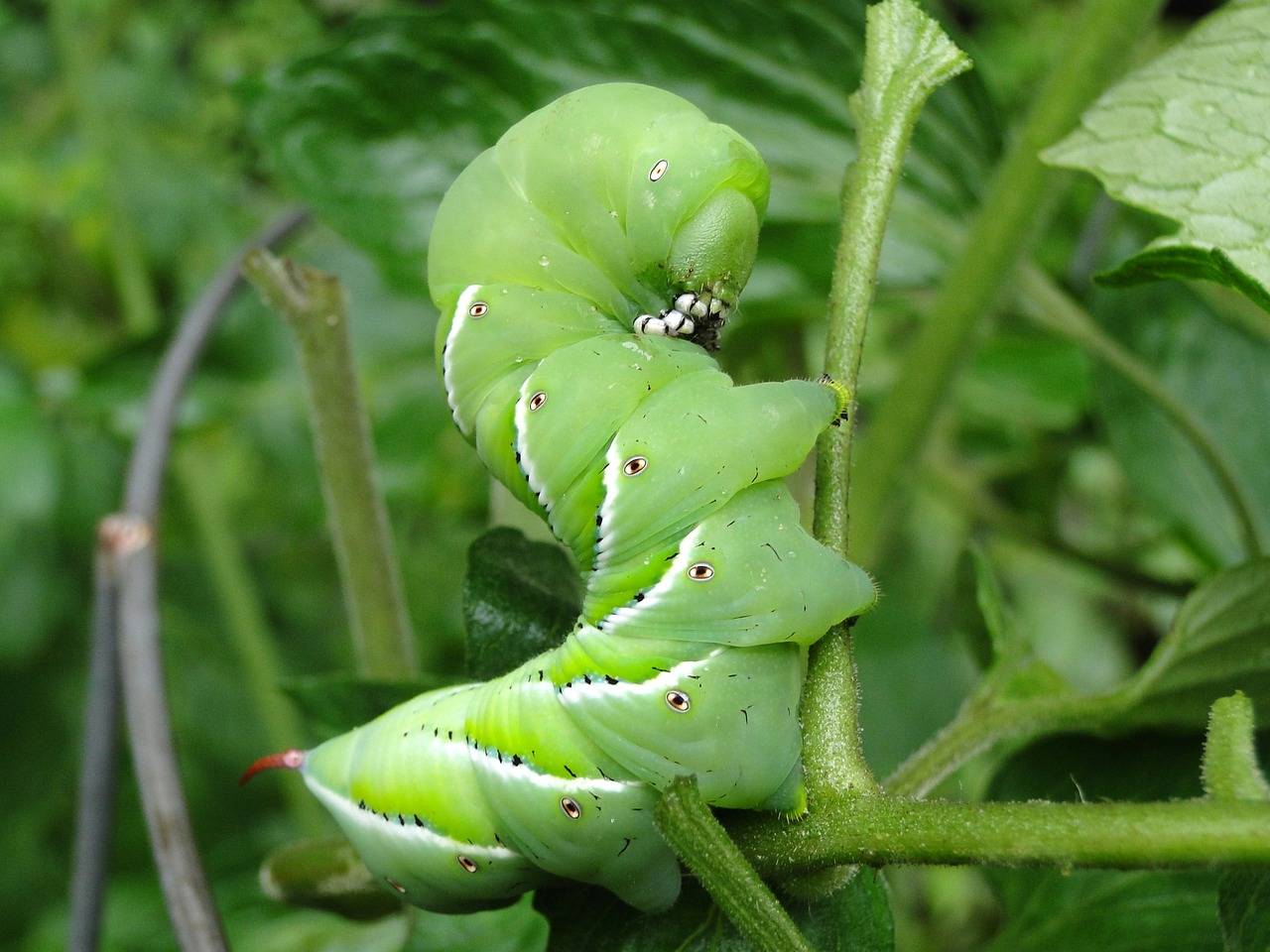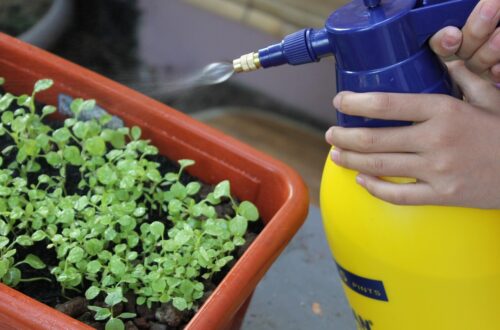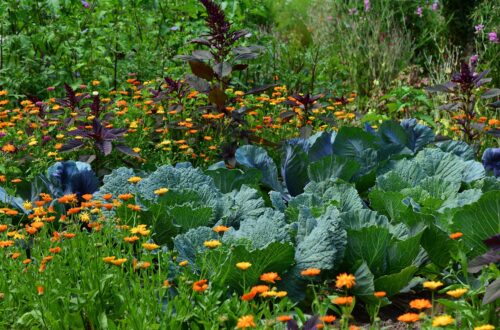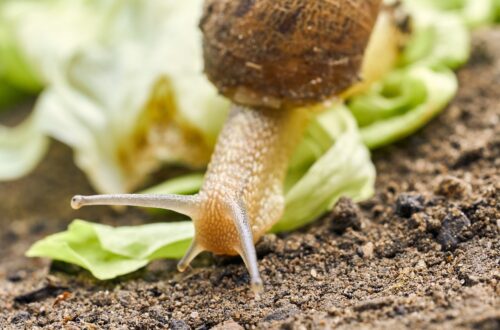Tomato hornworms, cabbage loopers and flea beetles can be a hassle in the garden, riddling plant leaves with holes and compromising the look of your homegrown produce. But when garden pests invade, there’s no reason to reach for chemical pesticides. After all, there are plenty of natural pest control options for organic gardens that are just as effective and they’re safer for bees and other pollinators too!
Whether you keep a vegetable garden, flower garden or just a few potted herbs, these organic gardening tips will help. Try out one or two of these pest management solutions or use them all to keep your plants pest free and thriving throughout the seasons!
AFFILIATE DISCLOSURE: AS AN AMAZON ASSOCIATE, I MAY EARN COMMISSIONS FROM QUALIFYING PURCHASES.
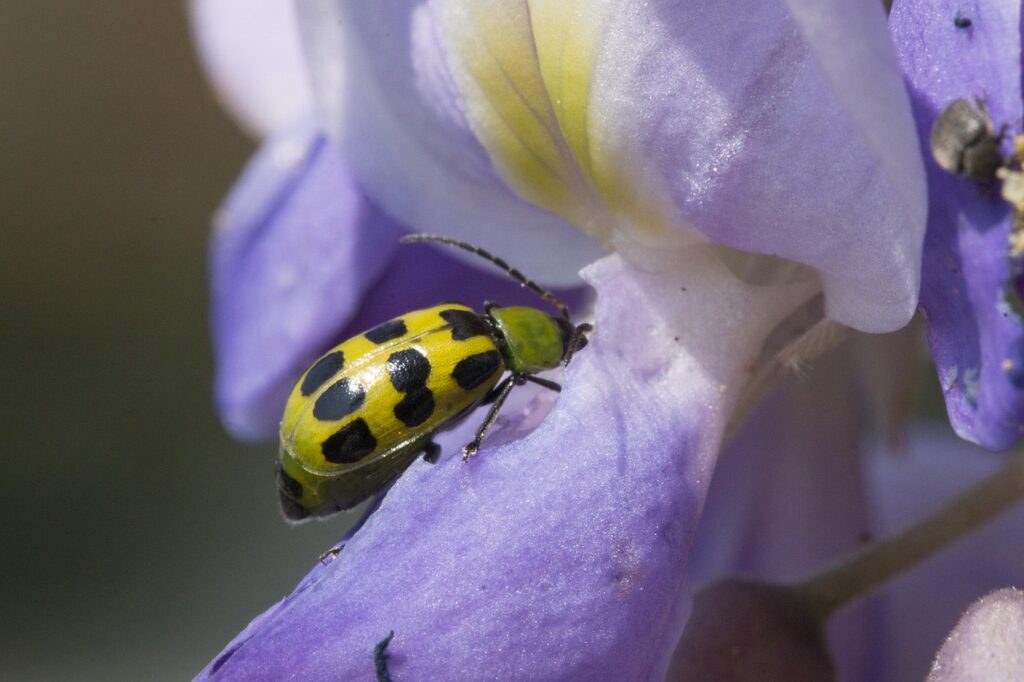
10 natural pest control tips for the organic garden
Controlling pests naturally is safer for you, the environment and pollinators too. Unlike chemical pesticides, the organic pest control strategies in the list below work in alignment with nature and they don’t pose the same risks for pollinators. Try out these tips to keep an assortment of garden pests away from your vegetable beds, container gardens and potted plants!
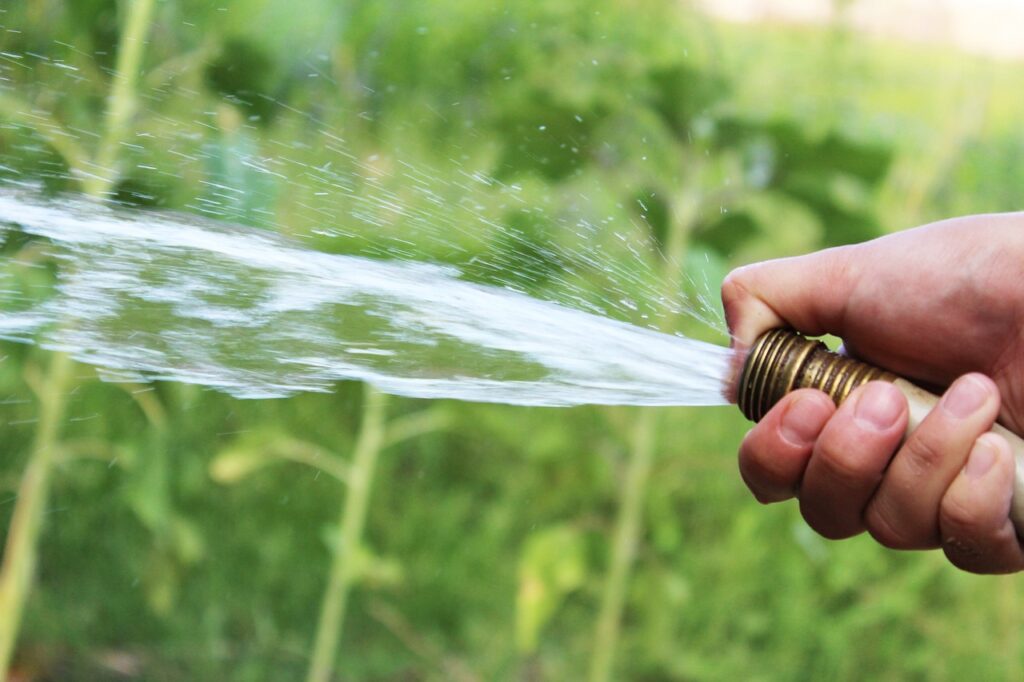
1. Keep your plants happy.
Happy plants are healthy plants and healthy plants are much better at resisting pests and diseases. So, if your goal is to keep garden insects from munching on your vegetables and flowers, you’ll first want to doublecheck that you’re meeting your plants’ specific growing needs.
Plants require a balance of water, light and nutrients to grow properly, but if they’re lacking any of these key essentials, they can become stressed and their natural immunities will be compromised. To avoid this, make sure you water your plants regularly and provide them with the amount of sun they need. Fertilizing plants throughout the growing season with an organic liquid or granular fertilizer, like kelp meal or fish emulsion, can also strengthen your plants over time and make them less vulnerable to spider mites, aphids and other garden invaders.
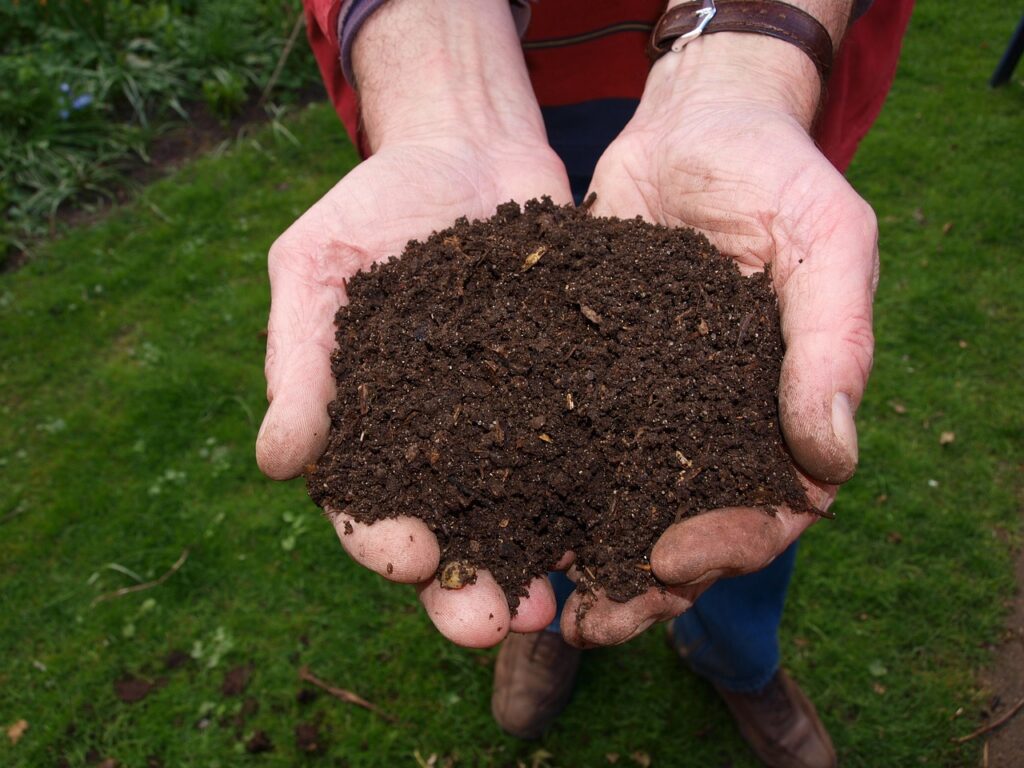
2. Improve soil health.
One of the best ways to grow pest-free plants and enhance the performance of your garden is to improve the health of your soil. Poorly draining soils with minimal nutrients don’t have a lot to offer plants and this can cause plants to become weak and leave them more vulnerable to insect damage and opportunistic plant diseases, like powdery mildew.
Adding compost or aged manure to your garden beds in spring or fall can contribute a lot of nutrient-rich organic matter to your garden and it also helps your beds drain better. Not to mention, compost and aged manure increase the activity of beneficial microorganisms, which lead to healthier plant root systems. And, best of all, compost is easy to make at home using both indoor and outdoor composting methods!
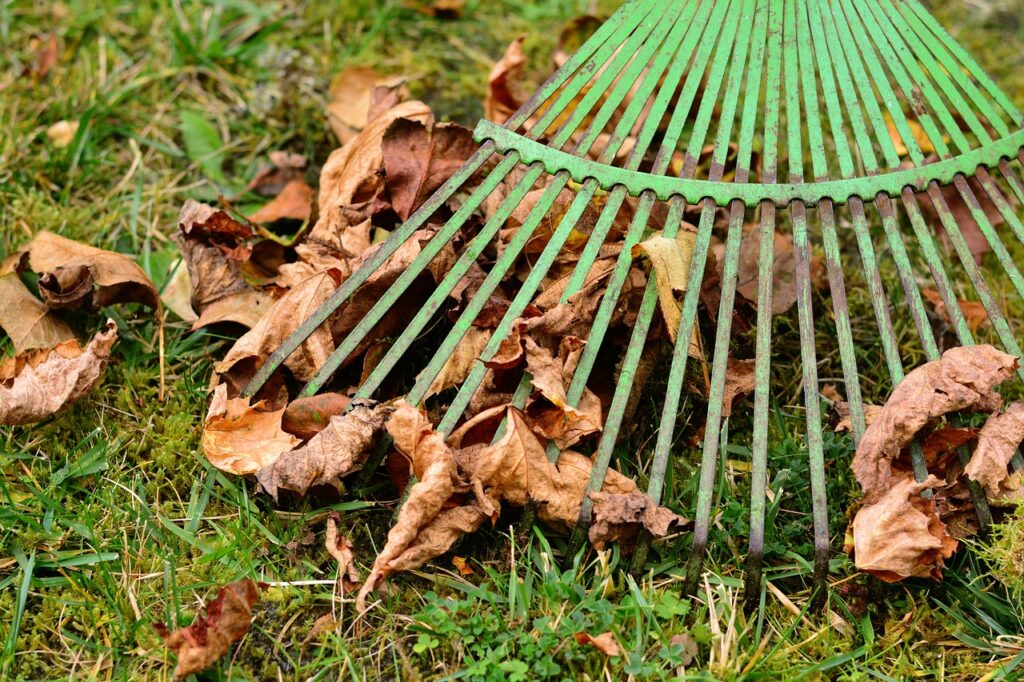
3. Practice good garden maintenance.
Leaving some plant debris in your garden in winter can benefit pollinators and beneficial insects, which use old plant matter as safe shelter during the winter months. But if your garden suffered from pest invasion during the growing season, doing a good fall garden cleanup can prevent destructive insects from overwintering in your beds and reemerging in spiring.
To this end, gather up and destroy any infected plant matter by either bagging and trashing it or burning it in your fire pit. Diseased plant debris can also sometimes be disposed of with hot composting methods, but you’ll need to make sure your compost pile gets hot enough to kill pests and insect eggs.
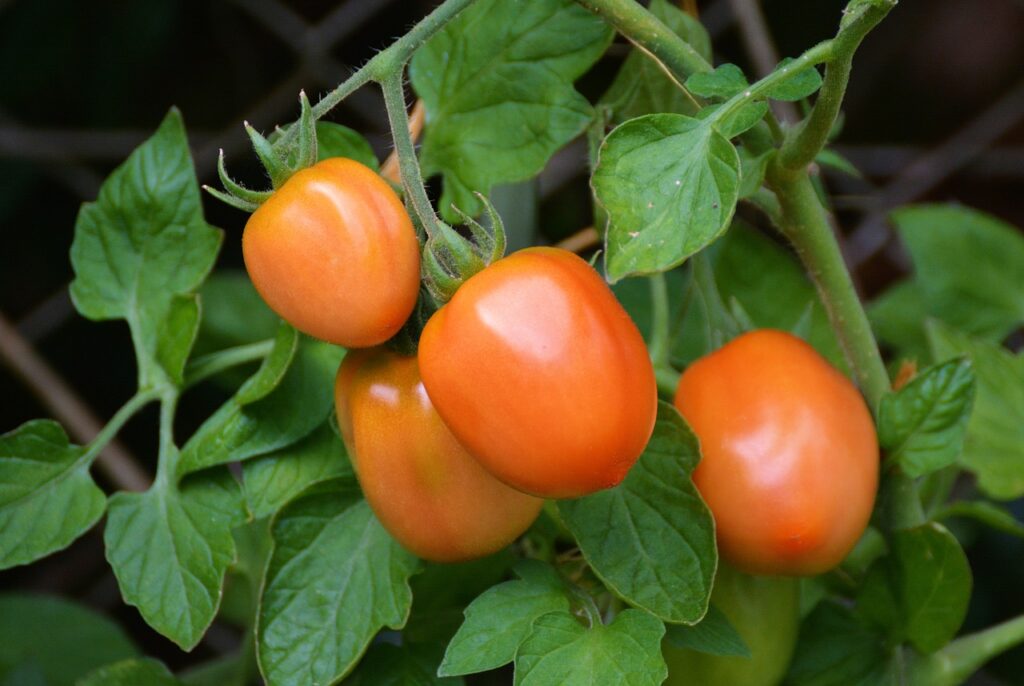
4. Rotate your crops.
Because pests can overwinter in garden beds and crop up again in spring, rotating your vegetable crops on a 3 to 5 year cycle is recommended. This is particularly important for pest-prone plants like tomatoes and other nightshades, but all vegetables will benefit from crop rotation.
To rotate crops, keep track of what you planted where in a garden journal or word document and make sure you don’t grow the same types of plants in that area of your garden for a few years. Remember that pests tend to target plants in the same plant family, so if your tomatoes were infested with tomato hornworms, you may want to avoid growing tomatoes, as well as peppers, eggplants and other nightshades in that section of your garden for a few seasons.
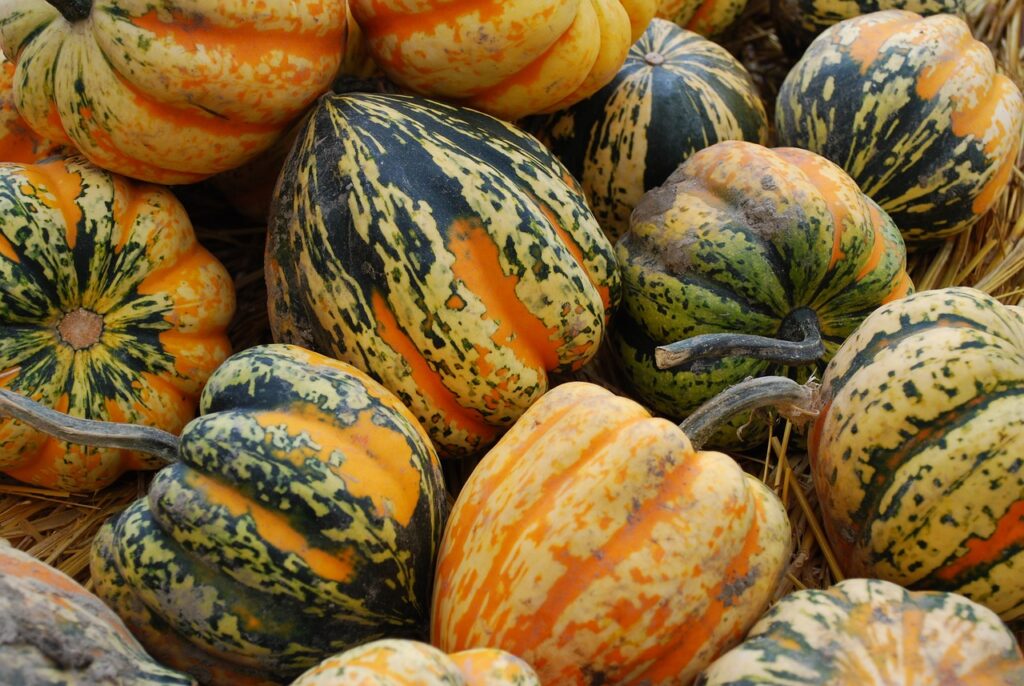
5. Plant resistant cultivars.
Pests like squash vine borers can rapidly destroy zucchini and summer squash plants and, since these pests overwinter in vegetable beds, they can cause a headache for gardeners for years. However, there is one easy solution: swap out your plants for pest-resistant cultivars!
Pest-resistant plants have been specially bred for characteristics that make them naturally repellant or resistant to insects, which means you won’t need to do as much to keep them pest-free. For instance, acorn squash plants don’t have hollow stems, so they are less appealing to squash vine borers than other squash cultivars. Andean tomatoes, on the other hand, naturally secrete a sticky substance, which makes them repellant to many common tomato pests.
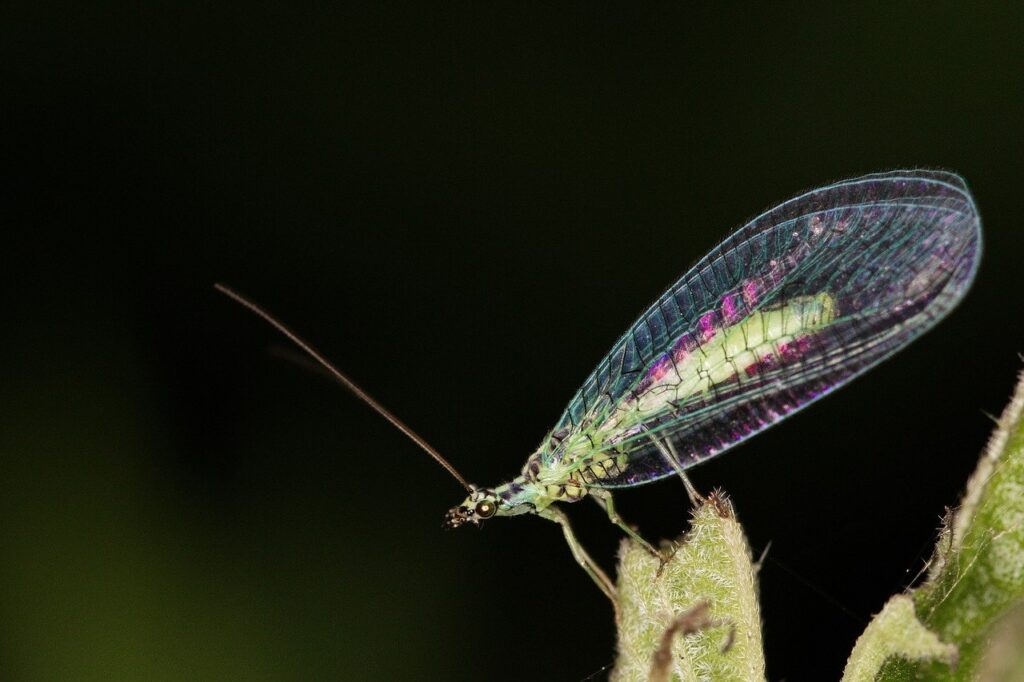
6. Experiment with companion planting.
Companion planting is an organic gardening technique wherein particular plants are grown together because they offer certain benefits to their neighbors. For instance, flowering dill and chives grown near squash plants can attract pollinators to squash flowers, resulting in a larger harvest of squash.
However, you can also use certain companion plants to control pests naturally. Strongly scented herbs like chives, mint and sage can repel a variety of pest insects, including aphids, as well as garden visitors like deer. Yarrow, borage and plants in the carrot family are also adept at attracting predatory insects, like ladybugs, lacewings and predatory wasps, which will feed on small pests and keep your garden pest free.

7. Use floating row covers.
Cabbage loopers, cucumber beetles and other insects can cause a lot of damage to vegetable crops. But you can keep these troublesome pests from ever touching your plants by installing floating row covers over your garden beds before the growing season even starts.
Floating row covers are made of a lightweight fabric that’s thick enough to keep pests at bay but thin enough to let sunlight and water in. Installed in early spring, floating row covers can form a handy barrier between your plants and whatever insects visit your garden. Just keep in mind that floating row covers offer no real protection against soil-dwelling pests and they work best when used in conjunction with crop rotation.
Tip: If you’d like to protect fruit or larger veggie crops like tomatoes, you may also want to try out fruit protection bags!

8. Try organic sprays and powders.
While pest prevention strategies, like floating row covers and crop rotation, can be very effective, pests can still sometimes find their way onto your plants. But if pests invade, there’s no reason to reach for harmful chemicals pesticides. Especially since organic sprays and powders can be just as useful and they don’t pose the same risks for pollinators and other wildlife.
What organic products will work best in your garden will depend on what types of pests you’re trying to eradicate. But to get you started, some of the organic products I use in my garden include:
- Organic soap sprays. Soap sprays work on a wide range of insects, including spider mites, aphids and thrips. If you’d like to make your own DIY soap spray, mix a few drops of Castille soap into a quart of water and then spray your plants down with the mixture.
- Neem oil spray. Like soap sprays, neem oil is another generalized organic pesticide that can tackle a range of insects and it’s made from the seeds of the neem tree. Only use this product in the evening or early morning as it can cause sunscald on plant leaves when it’s applied in direct sun.
- Diatomaceous earth. Diatomaceous earth is a fine powder made from the fossilized skeletons of tiny marine organisms, known as diatoms. When spread around the base of plants, DE forms a protective barrier and shreds the exoskeletons of any insects that crawl across it.
- BT Thuricide. BT thuricide is made from a naturally occurring bacteria and it’s approved for organic garden use. This natural pesticide specifically targets caterpillars and it’s particularly useful for protecting brassicas against cabbage loopers.
While the products above are all approved for organic gardens, they do have some caveats, so you need to know how to apply them correctly to avoid harming non-target insects. Specifically, these products should not be used on plants in flower and BT thuricide should never be sprayed near plants like milkweed, as it can potentially harm non-target caterpillar species if used incorrectly.
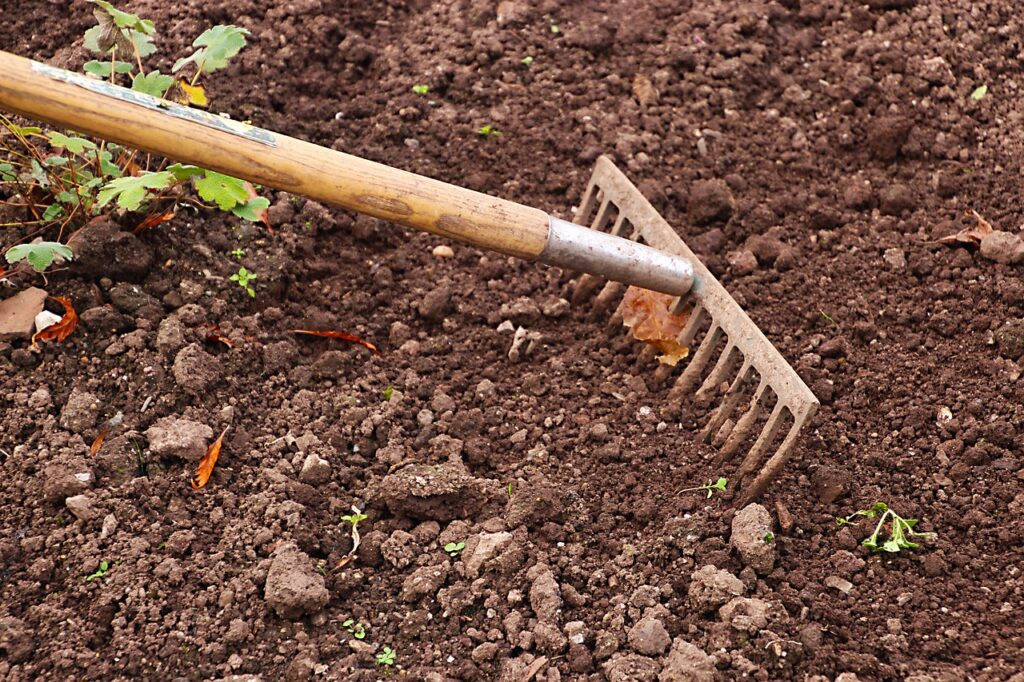
9. Solarize your soil.
If you’ve struggled with overwintering pests for awhile or your garden has been plagued by large infestations of pests like squash vine borers, you may want to consider soil solarization. This organic gardening technique essentially uses the heat from the sun to kill insects and eggs in garden soil and prevents their return. As it relies on heat, this treatment method should be performed in warm weather, ideally during the peak of summer.
To solarize garden beds, moisten the soil with your garden hose and then spread clear plastic sheeting over the soil you want to solarize. Make sure you’ve removed any plants you’d like to keep because solarization can cook them too! After spreading out the plastic sheet, anchor it down with rocks or landscape staples and leave it in place for at least 4 to 6 weeks during hot weather to sterilize your garden beds and keep pests from coming back.
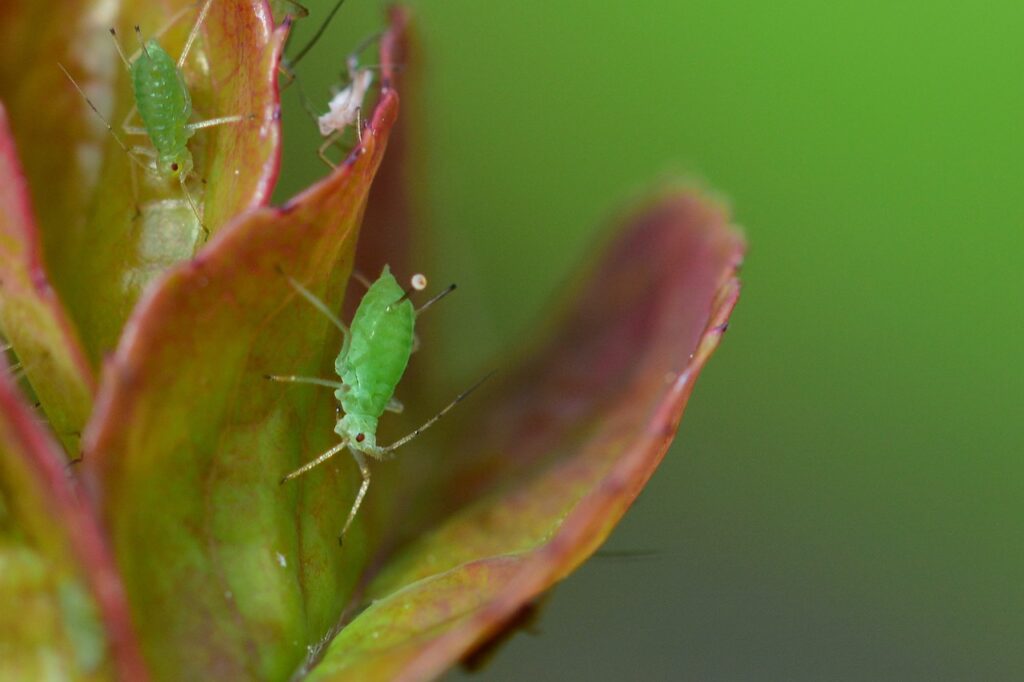
10. Be consistent.
As with any other treatment strategy, consistency is key. Treating plants just one time with soap sprays or neem oil can do a lot to reduce pest activity, but you’ll usually need to reapply treatment several weeks in a row to keep pests from returning. Likewise, crop rotation, floating row covers and other natural treatments will need to be performed regularly for best results.
I find gardening journals are useful for keeping track of what pests emerge at what times of the year. If, for instance, you know that aphids are always a problem in your autumn garden, you can make sure that you have companion plants or floating row covers in place before fall starts. And if you decide to use hand-picking methods to remove larger insects like hornworms, checking your plants on a daily or weekly basis will ensure pest insects never get too out of hand.
